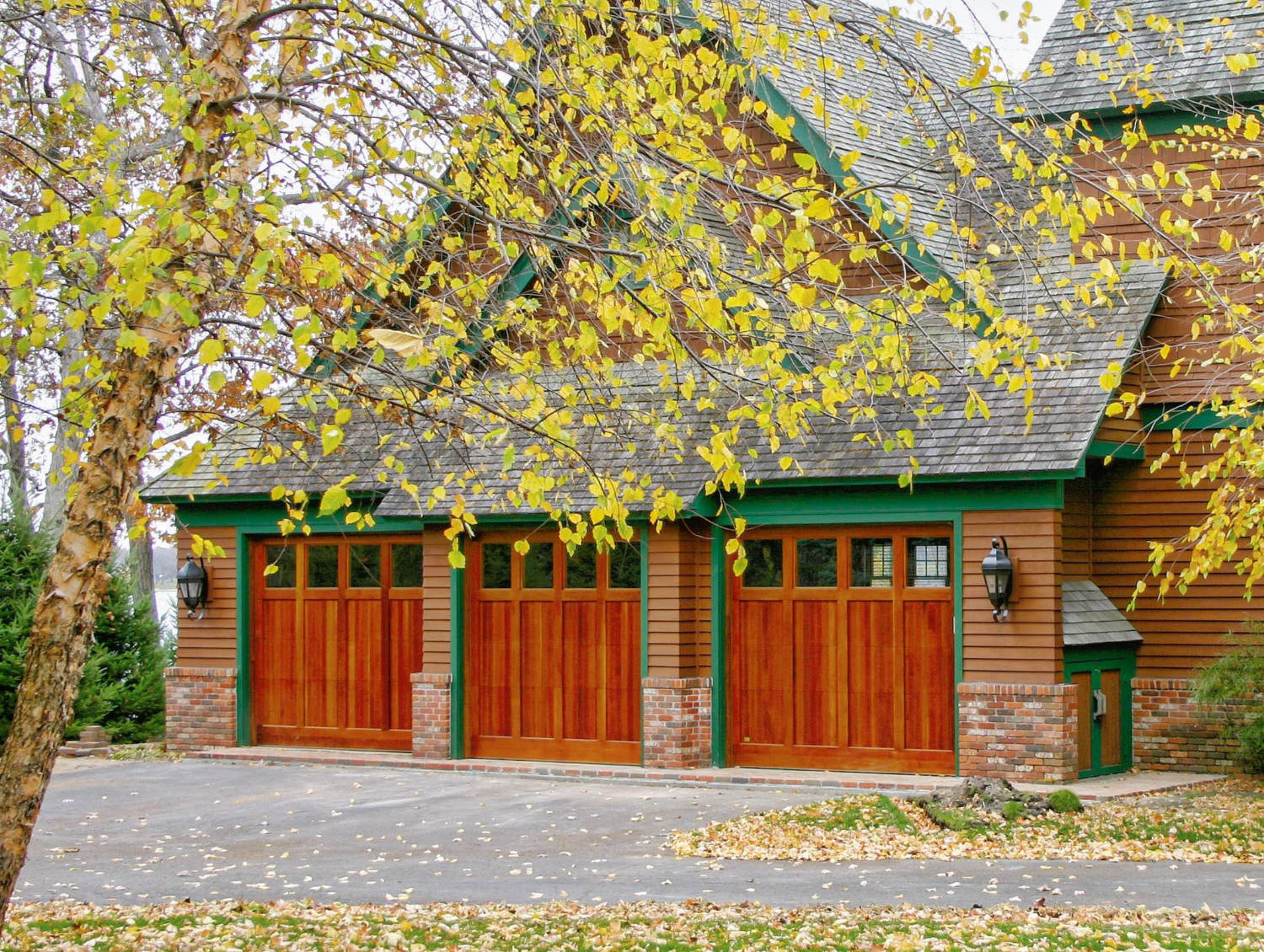
How Climate Impacts Garage Door Design
Housing design greatly varies across the large diverse geographic locations in the U.S., and for good reasons. Not only are housing designs tied to the culture and history present in each region’s architecture, they are also designed in certain ways to fit the climate of each region. The same can be said of garage door designs: they vary based on the climate in which they are in.
Garage doors are not only functional openings on a home, they are there to protect against the elements. Sunlight, heat and humidity, moisture and water, storms, wind, and many other weather-related elements can severely damage a garage door. So, it’s essential to design and build each door based on what it needs to be resistant to. Thankfully, when you build a custom wooden garage door, small tweaks can be made to the materials, design, and much more, allowing each garage door to be tailored to a particular climate.
This is how garage doors can change based on the weather and climate of a geographic region.
Garage Doors for Cold Climates
Moisture and freezing cold temperatures are the greatest concerns in these climates. Snow and ice easily accumulate on garage doors. When they melt, it creates a lot of water exposure for a door, meaning it needs to be sealed properly to prevent damage and rotting.
When creating a garage door for these types of climates, look for:
- The right type of wood: doors made with Douglas Fir frames are heavily resistant to rotting.
- Doors that manage moisture well. These include those with beveled trim board under the lite sections, vent holes, drip caps, and no exposed vertical end grain on the bottom of the door.
- Doors that are insulated well with foam and other insulated materials.
- Garage doors with walk-through doors. These allow you to keep the cold out by avoiding opening the overhead door.
- Doors with a high-quality finish that wicks and repels moisture and water.
Garage Doors for Hot and Humid Climates
High temperatures and humidity are dangers to every home. UV light can fade many materials over time, degrading their quality and causing them to become brittle. Humidity also contains just as much moisture as snow in colder climates, so moisture management is just as important in high-temperature climates as in cold temperature climates. High heat also brings insects and other pests, which can damage garage doors of lower quality.
When creating a garage door for these types of climates, look for:
- Doors that are resistant to moisture (see above).
- Finishes that are resistant to heat and UV light (preventing it from cracking, flaking, chalking, blistering, or lifting from the wood).
- Doors with powder coated hardware (tracks, etc.) that protect against moisture damage.
Garage Doors for Storm Prone Climates
Not all hot and humid climates have storms, but coastal areas do, and garage doors need to be able to withstand heavy amounts of rain and wind. The pressure created by high winds can rip doors off their tracks. They also bring with them flying debris that can dent and damage aluminum doors.
Special storm garage doors have several key features:
- They are engineered to withstand wind speeds of up to 150 mph.
- They meet or exceed the Notice of Acceptance in Miami-Dade and Broward County and the Florida Building Code product approval.
- They have impact-resistant glass designed to withstand flying debris.
You will also want similar moisture protection (noted above). Learn more about storm-rated garage doors in our design guide.
Choose the Right Door
Garage doors are more than their architectural designs. They need to be able to withstand anything your climate can throw at them. At CAMBEK, we not only help you build a beautiful, fully custom garage door that blends seamlessly into the style of your home, we build in features that allow it to last for decades. Get a free design consultation today.








